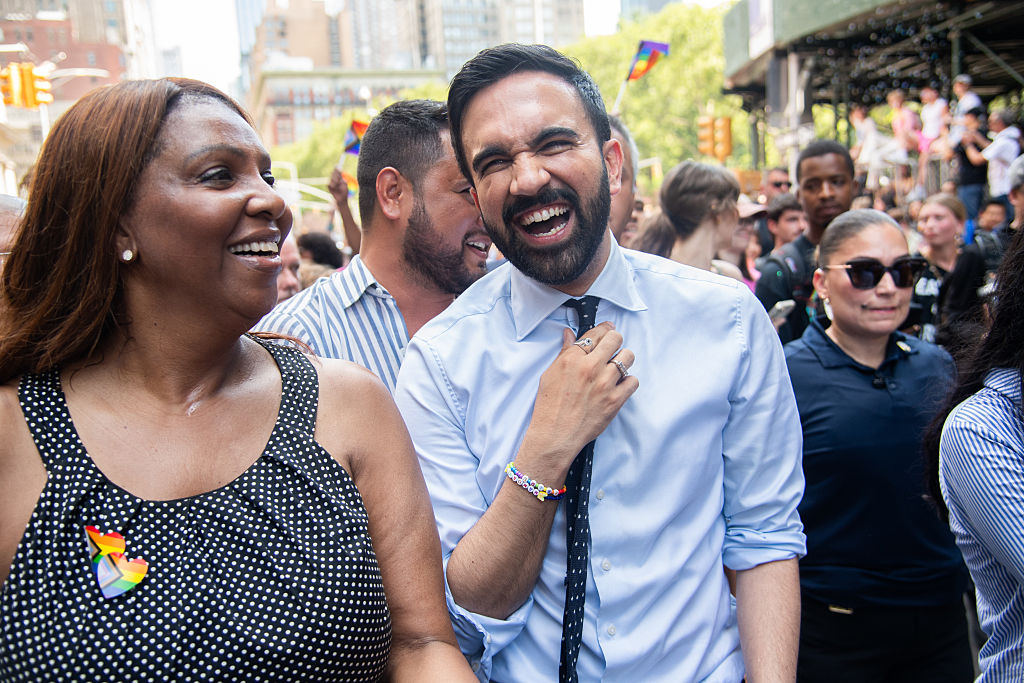Muslims and Christians Clash in Nigeria
After two days of mob violence, an uneasy calm returned Sunday to this central Nigerian town. Women with plastic buckets ventured out in search of water and many of the dead were buried.
Troops on foot and in armored personnel carriers appeared Sunday to have quelled two days of ethnic and religious rioting that left more than 300 people dead in Jos, apparently ending the worst violence in the West African nation since 2004.
Streets stayed mostly empty, but hunger and thirst forced some residents out of their homes for the first time since the riots began Friday after a disputed election. Hundreds of women and girls, who wouldn’t be considered combatants by soldiers with orders to shoot troublemakers on sight, carried buckets and cans to public water points.
“There’s no water in the house. Our children are crying for water, and all the shops are closed. Even the last food we have, we can’t cook because we have no water,” said Hawa Ismailah, a Muslim housewife with 24 people cowering in her home.
She carried a yellow plastic bucket toward one of the water pipes in her neighborhood, leading a procession of younger girls also bearing vessels for water.
Other people headed out of a town as supplies dwindled. Jennifer Emmanuel, a Christian secondary schoolgirl from southern Nigeria, rode in a bus under escort by a detachment of heavily armed police.
“As of now, we’ve eaten nothing,” she said. “We’re starving, so we have to leave the state.”
Thousands of other Nigerians who fled their homes during the riots were sheltered in army barracks, police stations and other public buildings. Sani Ibrahim, a Nigerian Red Cross official, said 6,000 people were holed up in one secondary school.
Early Sunday morning, a mass burial of 238 bodies took place, witnesses said.
At the Vatican, Pope Benedict XVI included Nigerian victims in his prayers and called on the world to express “horror and disapproval” at the senseless violence.
Jos, the capital of Plateau State, has a history of community violence that has made elections difficult to organize. Rioting in September 2001 killed more than 1,000 people and Muslim-Christian battles killed up to 700 people in 2004.
The city is situated in Nigeria’s “middle belt,” where dozens of ethnic groups mingle in a band of fertile and hotly contested land separating the Muslim north from the predominantly Christian south.
Nigeria is the most populous country in Africa; it straddles a fault line between Islam and Christianity that crosses the continent from the Indian Ocean to the Atlantic.
The fighting began as clashes between supporters of the region’s two main political parties following the first local election in Jos in more than a decade. The violence expanded along ethnic and religious lines, pitting Christians against Muslims. At least 300 bodies were taken to the central mosque.
The violence has handed one of the greatest challenges yet to the administration of President Umaru Yar’Adua, who came to power in a 2007 vote that international observers dismissed as not credible.
Few Nigerian elections have been deemed fair since independence from Britain in 1960, and military takeovers have periodically interrupted civilian rule.
More than 10,000 Nigerians have died in sectarian violence since civilian leaders took over from a military junta in 1999. Political strife over local issues is common in Nigeria, where government offices control massive budgets stemming from the country’s oil industry.















